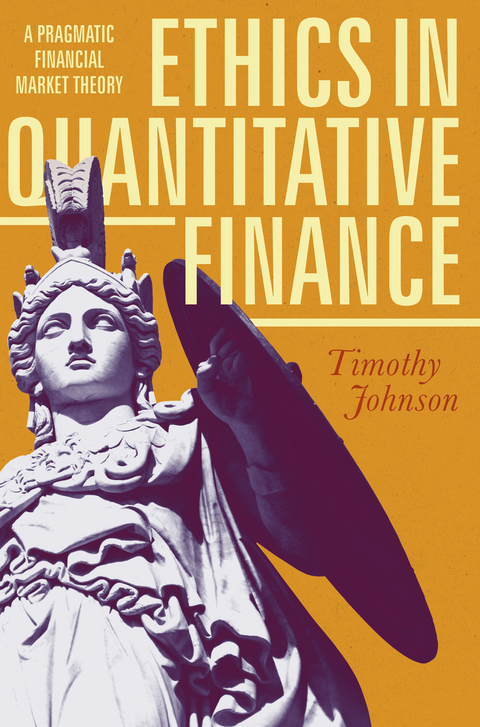
Ethics in Quantitative Finance
Springer International Publishing (Verlag)
978-3-319-61038-2 (ISBN)
This book presents an ethical theory for financial transactions that underpins the stability of modern economies. It combines elements from history, ethics, economics and mathematics to show how these combined can be used to develop a pragmatic theory of financial markets.
Written in three sections; section one examines the co-evolution of finance and mathematics in an ethical context by focusing on three periods: pre-Socratic Greece, Western Europe in the thirteenth century and North-western Europe in the seventeenth century to demonstrate how the historical development of markets and finance were critical in the development of European ideas of science and democracy. Section two interprets the evidence presented in section one to provide examples of the norms reciprocity, sincerity and charity and introduce the pragmatic theory. Section three uses the pragmatic theory to interpret recent financial crises, address emergent phenomena and relate the theory to alternative contemporary theories of markets.
Presenting a unique synthesis of mathematical and behavioural approaches to finance this book provides explicit ethical guidance that will be of interest to academics and practitioners alike.
Dr Timothy C Johnson is an Assistant Professor in the School of Mathematical & Computer Sciences; Actuarial Mathematics and Statistics at Heriot-Watt University, Scotland. He has a PhD in financial mathematics from King's College London, a BSc in physics from Imperial College, London, and a MSc in financial mathematics from King's College London. Prior to studying for his BSc he worked in the energy industry for 16 years. Timothy joined Heriot-Watt in September 2006 as the UK Research Council's Academic Fellow in Financial Mathematics where he is responsible for trying to explain the science of financial mathematics to the general public. His research interests are in the field of optimal decision making under uncertainty, focusing on optimal stochastic control.div>
Chapter1 The genesis of money and its impact.- Chapter2 Finance and ethics in medieval Europe.- Chapter3 Finance, mathematics and the foundations of modernity.- Chapter4 The philosophical basis of modernity.- Chapter5 The financial revolution of the late seventeenth century.- Chapter6 The Enlightenment and l'homme éclair.- Chapter7 Practical mathematics: the development of probability theory.- Chapter8 The emergence Homo economicus in the nineteenth century.- Chapter9 The ascendency of Financial Economics.- Chapter10 The Fundamental Theorem of Asset Pricing.- Chapter11 Two women and a duck: a pragmatic theory of markets.- Chapter12 Some implications of a pragmatic approach to finance.
| Erscheinungsdatum | 01.12.2017 |
|---|---|
| Zusatzinfo | VIII, 339 p. |
| Verlagsort | Cham |
| Sprache | englisch |
| Maße | 155 x 235 mm |
| Gewicht | 642 g |
| Themenwelt | Mathematik / Informatik ► Mathematik ► Angewandte Mathematik |
| Wirtschaft ► Betriebswirtschaft / Management ► Finanzierung | |
| Wirtschaft ► Betriebswirtschaft / Management ► Unternehmensführung / Management | |
| Wirtschaft ► Volkswirtschaftslehre | |
| Schlagworte | Applied mathematics • Business Ethics • business ethics & social responsibility • Business ethics & social responsibility • Economics and finance • Finance • Finance & accounting • Finance & accounting • Finance, general • Financial Crisis • Financial Ethics • Financialisation • Financial Mathematics • Greek mathematics • History of Finance • MONEY • Quantitative Finance |
| ISBN-10 | 3-319-61038-4 / 3319610384 |
| ISBN-13 | 978-3-319-61038-2 / 9783319610382 |
| Zustand | Neuware |
| Haben Sie eine Frage zum Produkt? |
aus dem Bereich


